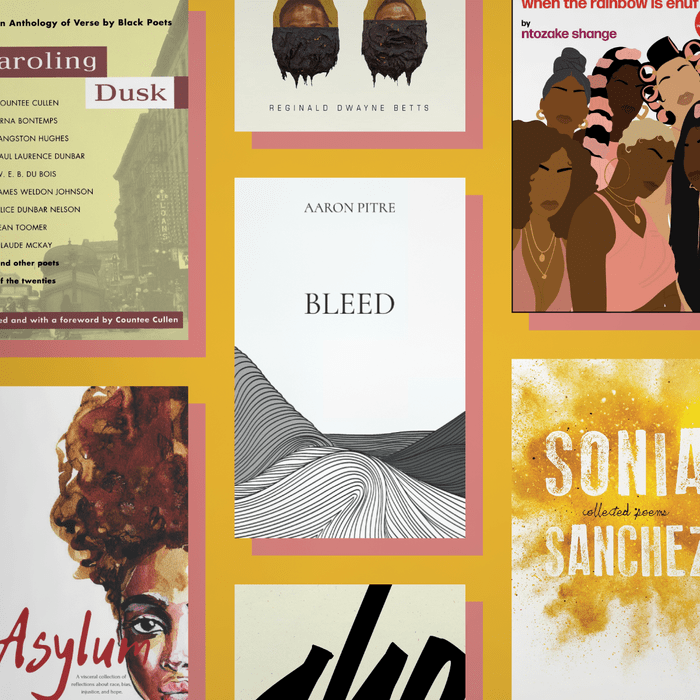
Poets are interpreters
There are many types of poetry in the world, from love poems that will make you swoon to nature poems and protest poems that examine the world around us in very different ways. But all poetry, even funny poems and short poems for kids, has a common thread: The poets who write it are interpreters. They take an honest look at events and emotions and boil them down to some essential truths. That is particularly true for Black poets, who write about myriad topics, of course, but also often bring the realities of race and racism into their work.
The following Black poets elevate the conversation around social justice, equality, education and hope. Their insightful, sometimes harsh and often inspiring poems provide essential perspectives, offer a way to make sense of the seemingly inexplicable and serve as catalysts for change. Trust us: You will be thinking about their words long after you finish reading their poetry. And just like novels, memoirs and other books by Black authors, you won’t be able to put their poetry collections down.
Get Reader’s Digest’s Read Up newsletter for more poetry, humor, cleaning, travel, tech and fun facts all week long.
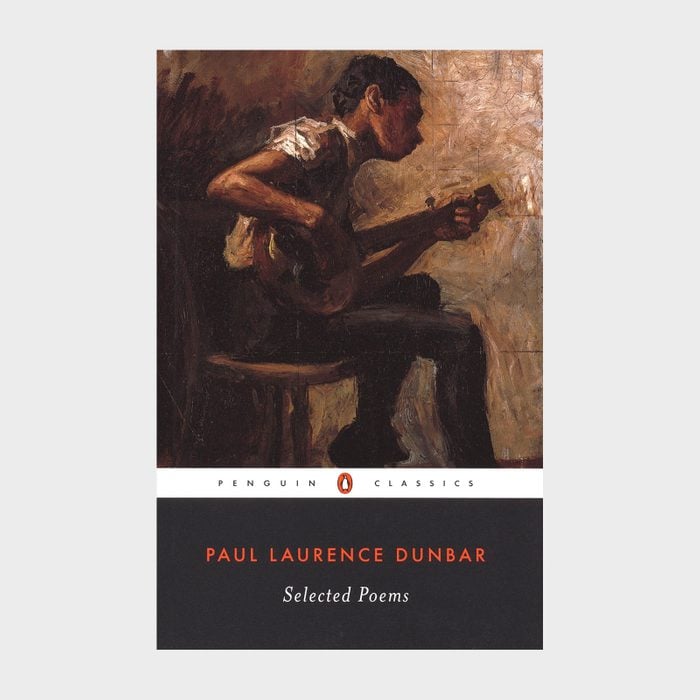
Paul Laurence Dunbar
Best-known poem: “We Wear the Mask”
Paul Laurence Dunbar, who wrote during the late 19th and early 20th centuries, is credited as one of the first influential Black poets in America. A graduate of Howard University, he was well respected for both his formal and dialectic poetry. Dunbar wasn’t just one of the leading poets, novelists and short story writers of his time; he also wrote the lyrics for the first all-Black production of a musical performed on Broadway, 1903’s In Dahomey.
One of my favorite poems of Dunbar’s is “We Wear the Mask,” which beautifully portrays the weight that many Black people carry as they flow in “double consciousness” as a means of survival in an often racially conscious society. An excerpt from this nuanced and gentle poem (you can read it in full in one of his poetry collections) reads:
We wear the mask that grins and lies,
It hides our cheeks and shades our eyes,—
This debt we pay to human guile;
With torn and bleeding hearts we smile,
And mouth with myriad subtleties.
Why should the world be over-wise,
In counting all our tears and sighs?
Nay, let them only see us, while
We wear the mask.
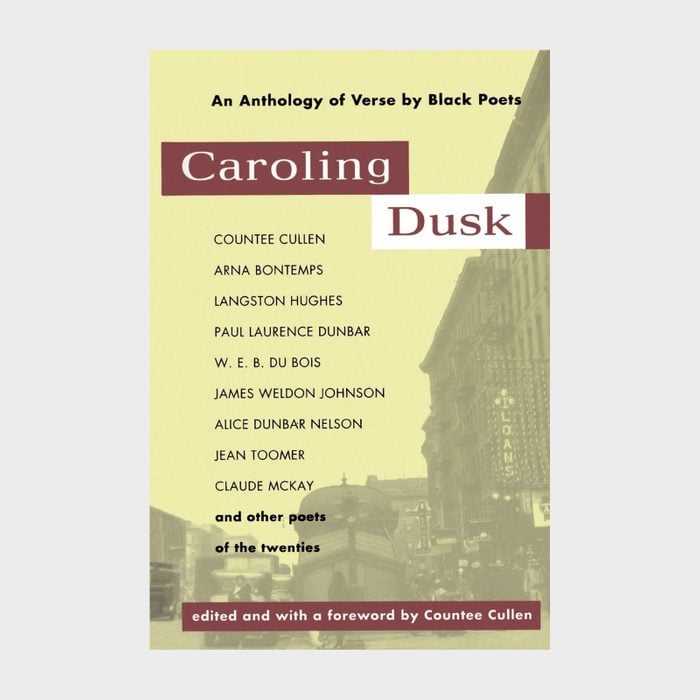
Countee Cullen
Best-known poems: “Incident” and “Heritage”
Countee Cullen was one of the most significant Black poets of the Harlem Renaissance. A graduate of New York University who went on to get a master’s degree in English from Harvard, Cullen was one of the most famous voices of the early 20th century. His work as a poet, novelist and playwright was exceedingly popular with his contemporaries. Some of his most well-known works at the time were: “Yet Do I Marvel,” “Heritage” and “Incident.” In the 1927 poem “Incident,” Cullen delicately takes the reader on a quick journey to Baltimore, where he’s called a racial epithet by another young boy. The event made an irreparable mark on Cullen and highlights his experience with racism in America.
An excerpt of “Heritage,” which was included in Cullen’s 1927 poetry collection, Caroling Dusk, is a good introduction to the works of this masterful poet:
What is Africa to me:
Copper sun or scarlet sea,
Jungle star or jungle track,
Strong bronzed men, or regal black
Women from whose loins I sprang
When the birds of Eden sang?
One three centuries removed
From the scenes his fathers loved,
Spicy grove, cinnamon tree,
What is Africa to me?
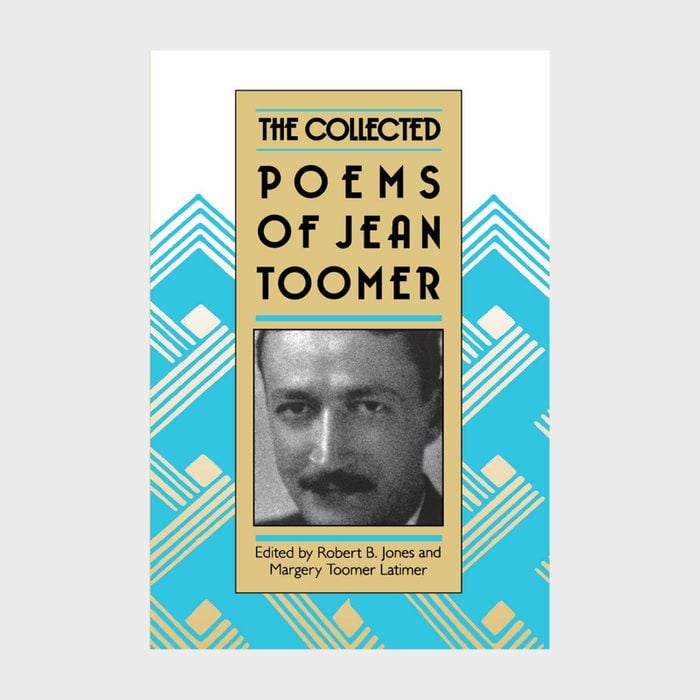
Jean Toomer
Best-known poem: “Blue Meridian”
Jean Toomer was a famous Black poet and novelist whose work impacted the Harlem Renaissance and modernist literary movements. Toomer’s literary work was inspired by the “New Negro” movement in New York, and throughout his personal life and professional work, he resisted racial categorization. His most famous work, a collection of stories and poems titled Cane, was well received by both Black and White critics alike. Prolific writer, author and poet Langston Hughes said of Toomer’s work: “Yet excepting the works of Du Bois, Cane contains the finest prose written by a Negro in America.”
Need a good reason to pore over Cane? This excerpt makes a great case. When you’re done, check out these moving love poems for the woman in your life.
Thunder blossoms gorgeously above our heads,
Great, hollow, bell-like flowers,
Rumbling in the wind,
Stretching clappers to strike our ears . . .
Full-lipped flowers
Bitten by the sun
Bleeding rain
Dripping rain like golden honey—
And the sweet earth flying from the thunder.
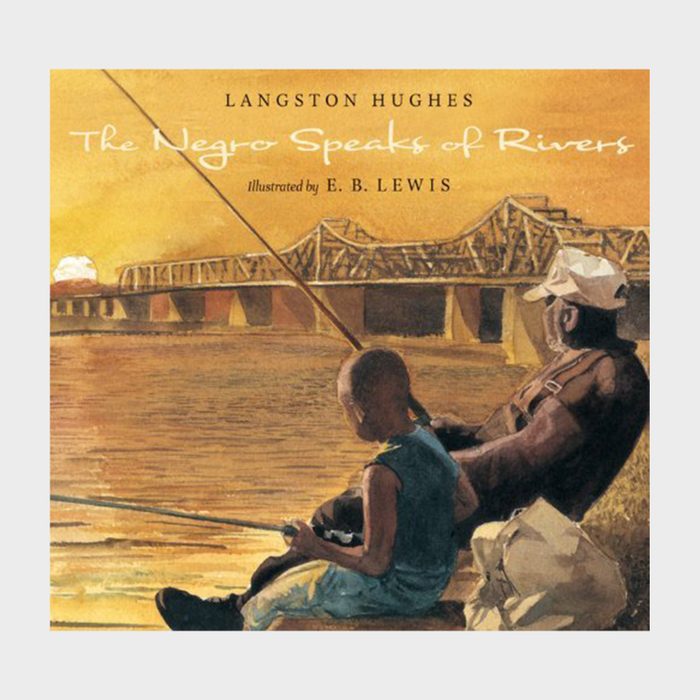
Langston Hughes
Best-known poems: “Harlem” and “The Negro Speaks of Rivers”
Langston Hughes isn’t just one of the most well-known Black poets of the early 20th century—he’s one of the most celebrated American poets, period. He’s known as the leader of the Harlem Renaissance movement and is credited with creating jazz poetry. A vibrant life full of exploration and education informed his work, which he deliberately centered on the lives of working-class Black people. Hughes wrote a weekly column for the Chicago Defender from 1942 to 1962, using the space to write extensively about the Civil Rights Movement. Exactly how influential was Hughes? The New York City Preservation Commission named his Harlem residence a landmark, and his ashes were spread beneath the cosmogram of the Schomburg Center for Research in Black Culture.
Hughes’s “Harlem” is instantly recognizable—there’s a good chance you’ve heard the opening line, “What happens to a dream deferred?”. If you’re still curious about his work, another one of Langston Hughes’s poems is worth a read. He wrote “The Negro Speaks of Rivers” when he was just 17 years old, and you can check out the full text below.
I’ve known rivers:
I’ve known rivers ancient as the world and older than the flow of human blood in human veins.
My soul has grown deep like the rivers.
I bathed in the Euphrates when dawns were young.
I built my hut near the Congo and it lulled me to sleep.
I looked upon the Nile and raised the pyramids above it.
I heard the singing of the Mississippi when Abe Lincoln went down to New Orleans, and I’ve seen its muddy bosom turn all golden in the sunset.
I’ve known rivers:
Ancient, dusky rivers.
My soul has grown deep like the rivers.
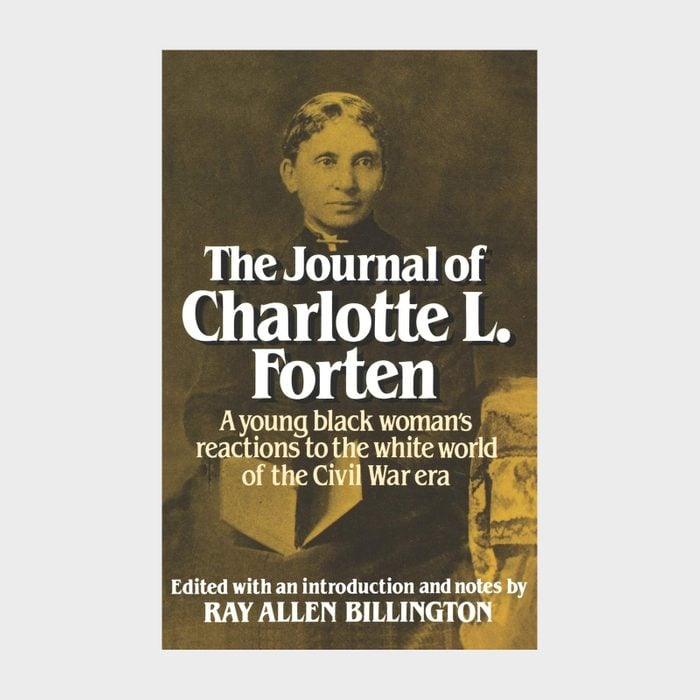
Charlotte Forten Grimké
Best-known poem: “At the Home of Frederick Douglass”
Born into an elite abolitionist family in Philadelphia, Charlotte Louisa Forten Grimké was a free Black woman who enjoyed the privilege of private tutors and an exclusive education. During the Antebellum and Reconstruction eras, she was an activist, poet and educator—she even taught freed slaves during the Civil War and wrote about it for The Atlantic in the 1864 article “Life on the Sea Islands.” Grimké used her education and influence to teach and empower others, and she used her writing to expose the ills of both racial and gender inequality. She went on to help establish the National Association of Colored Women, and she remains to this day a notable voice in American history.
You can read more about the poet’s life in The Journal of Charlotte L. Forten, a collection of her diaries from her teens and mid-20s. This short poem is just a glimpse of her powerful words:
May those whose holy task it is,
To guide impulsive youth,
Fail not to cherish in their souls
A reverence for truth;
For teachings which the lips impart
Must have their source within the heart.
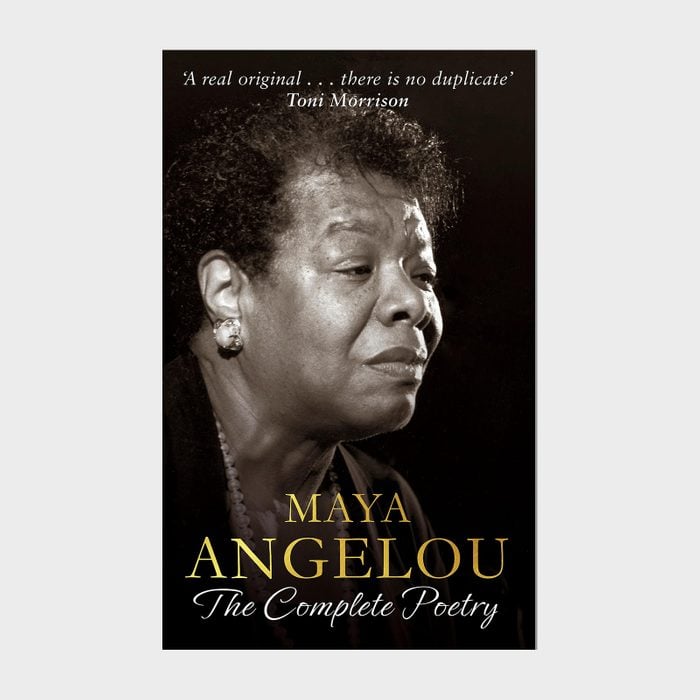
Maya Angelou
Best-known poems: “Still I Rise” and “Phenomenal Woman”
Maya Angelou is known as one of the most famous Black poets of a generation. Born in 1928, she grew into a poet, writer, activist, actress and director whose work had a profound impact on American culture. Modern readers may remember her for performing “On the Pulse of the Morning” at President Bill Clinton’s inauguration. Or for receiving the 2011 Presidential Medal of Honor from President Barack Obama. Or for any of her notable autobiographies—I Know Why the Caged Bird Sings, Gather Together In My Name and All God’s Children Need Traveling Shoes among them. No doubt many readers remember her for her poetry, including “Still I Rise” and “Phenomenal Woman,” which happens to be my favorite.
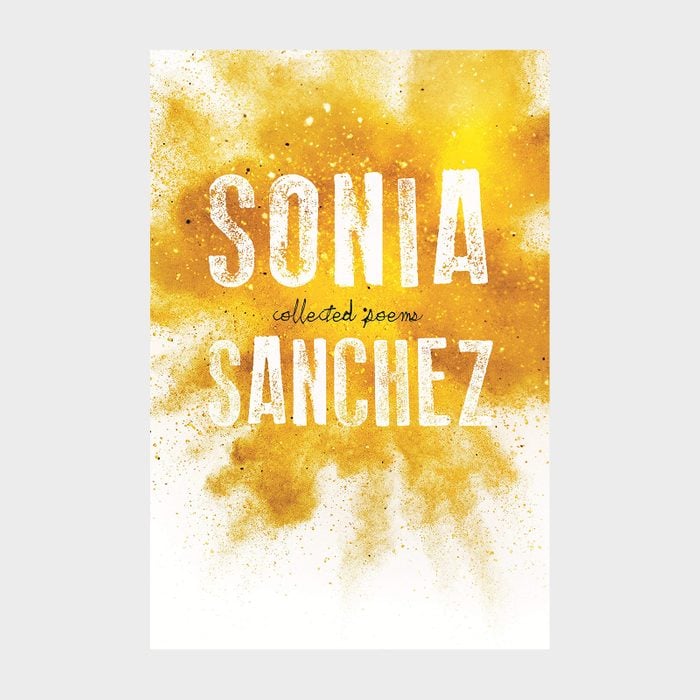
Sonia Sanchez
Best-known poem: “Homecoming”
A leader of the Black Arts movement of the ’60s and ’70s, Sonia Sanchez is known for Black activism and for celebrating Black life through her work. (So committed was she that she established the first Black Studies program in the United States.) She’s a prolific writer, penning more than 20 poetry collections, plus plays and children’s books. Her works have won the Ruth Lilly Poetry Prize and the National Book Critics Circle Award; she’s even received the Poetry Society of America’s Robert Frost medal. But it’s not just her poetry that has won her fans; her spoken-word performances (you might’ve seen them on HBO’s Def Poetry series that aired in the early 2000s) have too.
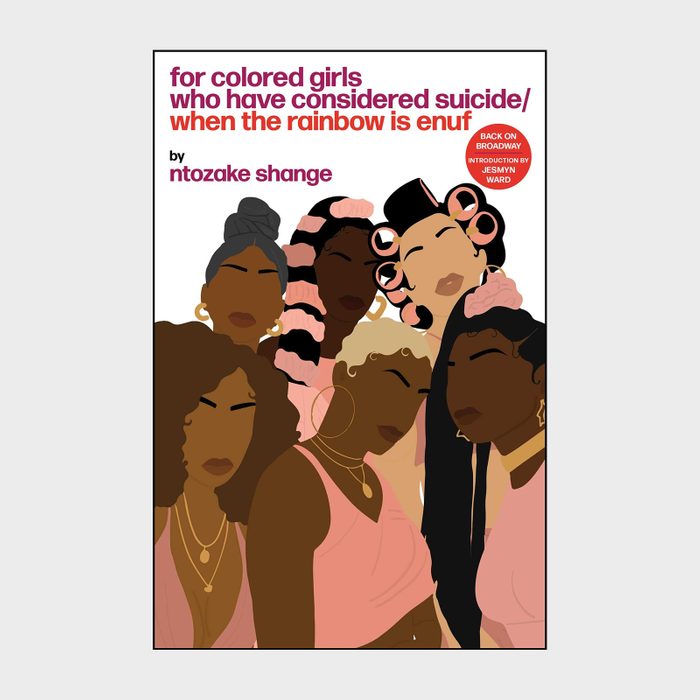
Ntozake Shange
Best-known poem: “for colored girls who have considered suicide/ when the rainbow is enuf”
Known for works such as Sassafrass, Cypress & Indigo and Nappy Edges, Ntozake Shange was a poet, writer and activist whose work was greatly influenced by the Black Arts movement. Her poems tackled topics like Black feminism and empowerment, and they played with form, using letters and punctuation to give life to her words. Though her work on a whole has been widely celebrated, her most lauded and lasting piece is “for colored girls who have considered suicide/ when the rainbow is enuf.” Shange coined the term choreopoem when describing it: a mix of poetry, music and dance. It became a Broadway hit in 1977, a Tyler Perry film in 2010 and a Broadway revival in 2022.
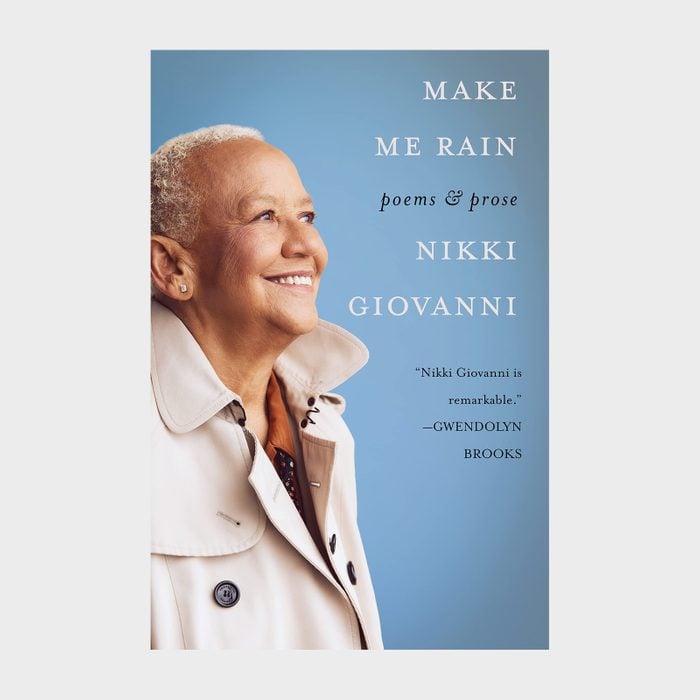
Nikki Giovanni
Best-known poems: “Black Judgement” and “Nikki-Rosa”
Greatly influenced by her involvement in the Black Power and Black Arts movements, poet, educator, writer and activist Nikki Giovanni has centered most of her work on themes of empowerment and the Black identity. Some of her most notable poetry books include Those Who Ride the Night Winds and Black Feeling, Black Talk, Black Judgement, the latter of which features “Nikki-Rosa,” a powerful poem about what makes a happy childhood. More recently, she helped advance the work of other Black poets by editing The 100 Best African American Poems. Now in her 80s, Giovanni has a slew of honors to her name, including the Rosa L. Parks Woman of Courage Award, the Langston Hughes Award, the Literary Excellence Award and a staggering seven NAACP Image awards.
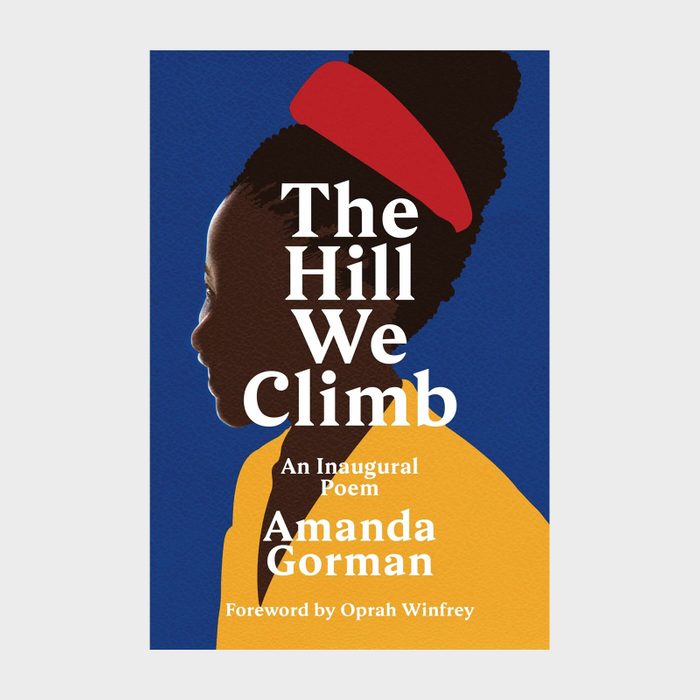
Amanda Gorman
Best-known poem: “The Hill We Climb”
Poetess and Harvard graduate Amanda Gorman may be just 25 years old, but she has already used her gift with words to elevate America’s consciousness. As the nation’s first National Youth Poet Laureate, Gorman personifies the possibility of the next generation of leaders. Her poem “The Hill We Climb,” which she read at President Biden’s inauguration, speaks of hope, the past, the future and the reality that “a skinny Black girl descended from slaves and raised by a single mother can dream of becoming a president, only to find herself reciting for one.” With a regal presence and poise well beyond her years, Gorman—who recently became the first poet to grace the cover of Vogue—does not shy away from using her poetry to speak about the social injustices happening in the world today.
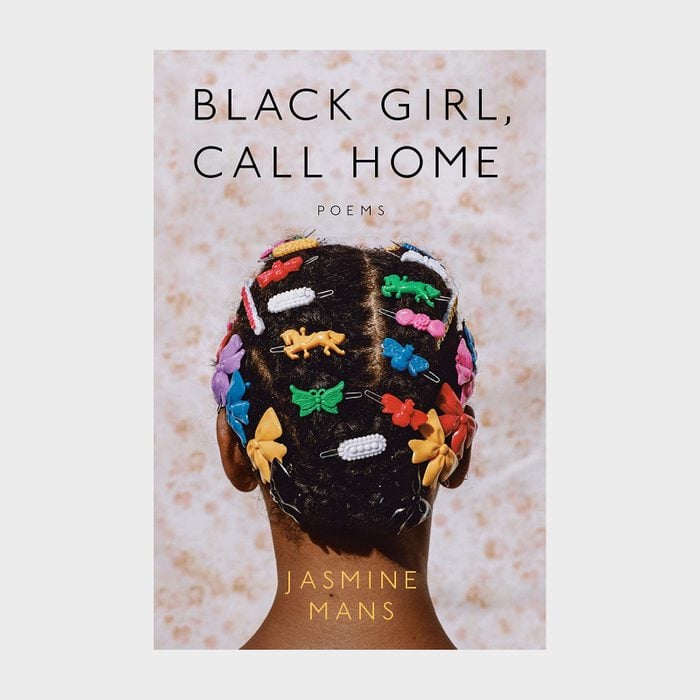
Jasmine Mans
Best-known poem: “Footnotes for Kanye”
Jasmine Mans is a spoken-word poet, and her latest collection, Black Girl, Call Home, centers on race, feminism and identity from the perspective of a queer Black woman. Mans has established herself as a well-respected voice that does not shy away from using words to cut to the heart of a matter. In the poem “Footnotes for Kanye,” she highlights the mindset of “otherness” toward Blackness that some successful Black men adopt, and she touches on the disconnect that happens to many people of color as they assimilate or climb the ladder of success.
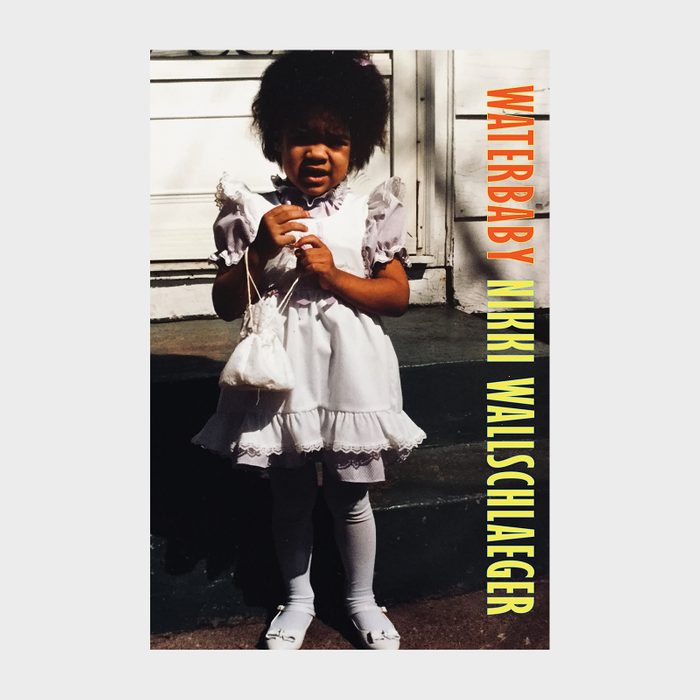
Nikki Wallschlaeger
Best-known poem: “The Body Keeps the Keys”
The author of Houses and Crawlspace, Nikki Wallschlaeger released a 2021 collection of poems called Waterbaby that uses water as a symbol for grief. She tackles the topic on several levels, from the personal to the societal to the historical. But the book is bigger than even that, covering themes of motherhood, Blackness, wealth and what it means to be American with the poet’s masterful lyricism. Read these poems for of-the-moment insights and a theme that recurs throughout Wallschlaeger’s work: “Critiquing the hell out of America and having a sense of wicked humor about it,” as she told the Los Angeles Review of Books. She certainly has a fluid, ethereal knack for expressing not-so-pretty truths, just as she does in the poem “I’d Come Back from the Grave to Celebrate the End of Capitalism.”
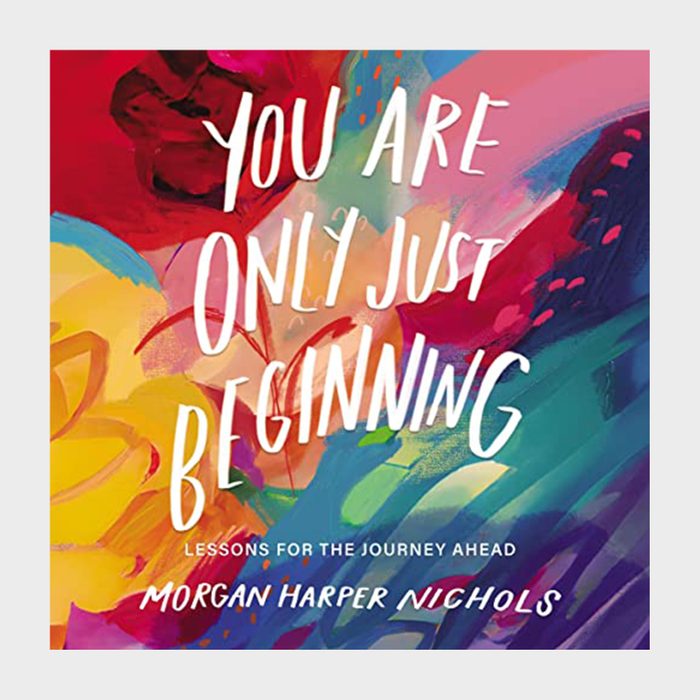
Morgan Harper Nichols
Best-known poem: “You Are Only Just Beginning: Lessons for the Journey Ahead”
The bestselling author of All Along You Were Blooming, How Far You Have Come and Peace Is a Practice, Morgan Harper Nichols published yet another must-read poetry and art collection earlier this year. You Are Only Just Beginning aims to inspire others to be who they are and embrace the possibilities of the present and future with childlike wonder. It’s a natural topic for Nichols, who found purpose and hope in her art while grappling with undiagnosed autism. Like the best friend who assures you it’s all going to be OK, Nichols is a comforting, encouraging voice. She’s known for inspirational poems that disperse honest reflections, aspirational artwork and hope to her nearly 2 million followers on Instagram.
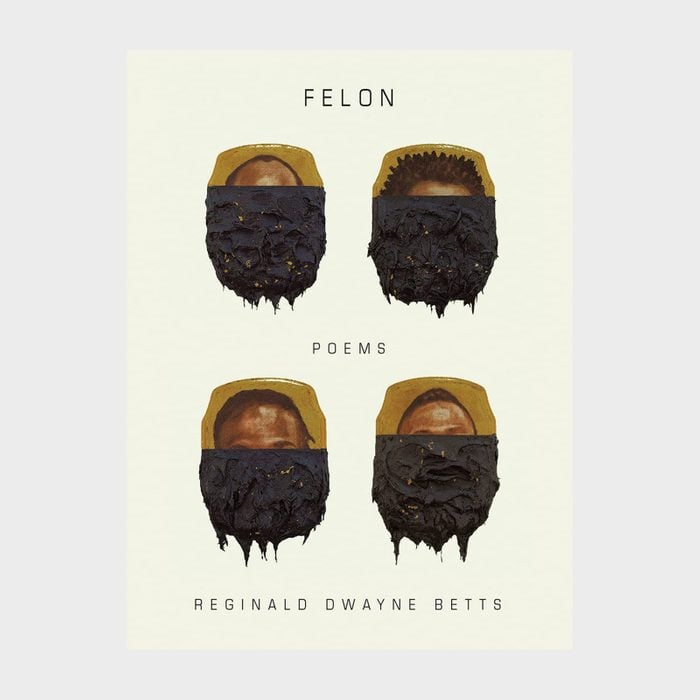
Reginald Dwayne Betts
Best-known poem: “Prison”
We hear a lot about the problems with the prison system in America, but we often don’t take the time to fully understand the lasting impact incarceration has not only on former inmates but also on families and communities. Reginald Dwayne Betts speaks to that truth, which he knows a lot about. He went to prison for carjacking when he was 16, but after his release, he attended Yale Law School. He went on to write the poetry collection Bastards of the Reagan Era, the memoir A Question of Freedom and his most recent poetry collection, Felon: Poems, which provides a candid glimpse into the experiences of those who are “released” back into the world. Betts has been the recipient of the American Book Award and an NAACP Image Award. He’s also the founder of Freedom Reads, an organization that helps provide access to literature for those in prison.
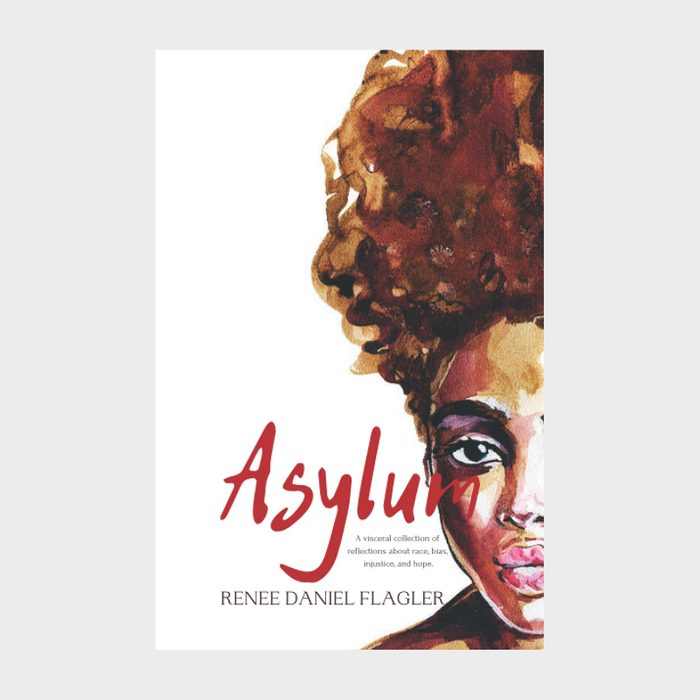
Renee Daniel Flagler
Best-known poem: “Can I Just Be a Woman”
Renee Daniel Flagler is a New York–based professor, writer and speaker who uses her platforms to inspire girls and women to step into their purpose; she also helps provide them with literary opportunities and scholarships. Asylum, Flagler’s 2021 book of poetry, touches on themes of race, bias, injustice and hope. Flagler writes autobiographically about being a Black American, woman, mother and professional, and her poems are worth poring over for a better understanding of what it means to be a Black woman in America today.
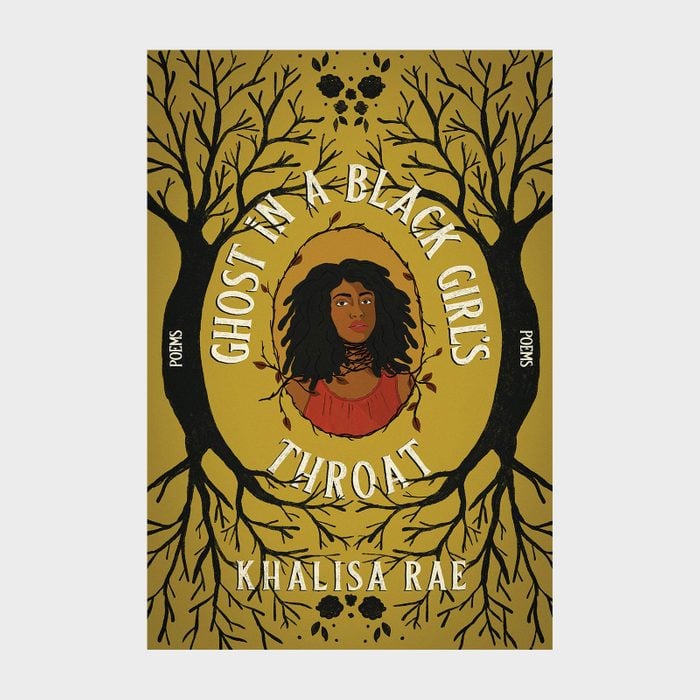
Khalisa Rae
Best-known poem: “Mermaids & Ghost Ships”
Khalisa Rae is a Black poet, journalist, educator and activist who uses her passion for the written and spoken word to inspire, educate and uplift others, particularly BIPOC women. With her monthly reading series, WomenSpeaks, which she co-curates with Gaia Rajan, Rae aims to provide a space for poets and writers at various stages in their careers. While her essays, poems and other works have been published in several publications, her debut poetry collection, Ghost in a Black Girl’s Throat, is a good place to start. Or check out her poem “Mermaids & Ghost Ships,” which delves into ancestral trauma and showcases the reality that blood carries memory.
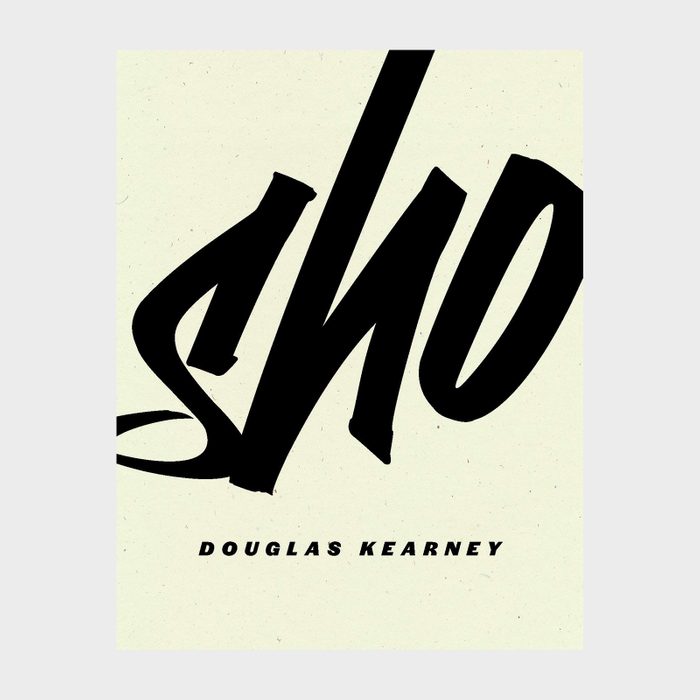
Douglas Kearney
Best-known poem: “Sho”
Douglas Kearney is an award-winning poet, librettist and performer whose work centers on themes like pop culture, politics, contemporary music, Black culture and more. Pick up his 2021 poetry collection—Sho, which was a National Book Award finalist—for an exploration of “Black vernacular traditions,” history, folklore and the interconnectivity (or maybe even the disconnectivity) between entertainment and violence. His latest book, Optic Subwoof, is a collection of lectures that examine the “nuances around Black visibility.”
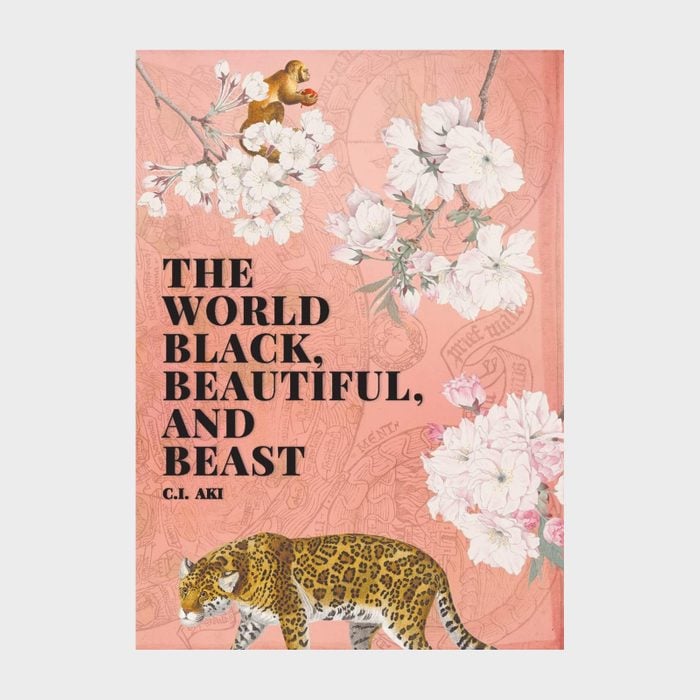
C.I. Aki
Best-known poem: “The Sad Love Songs”
C.I. Aki weaves together words that tug at the core of your soul and show that there’s so much more to the human spirit than just examining racial identity. His book of poetry, The World Black, Beautiful, and Beast, delves into themes of racial bias, discrimination and injustice, but it also poses the question “Is this the only role of Black poetry?” This notion is powerful because Black artists have often grappled with the conflict between their artistry and social responsibility. His work poignantly and beautifully exemplifies the concept that the soul cannot be solely defined by social and ideological constructs.
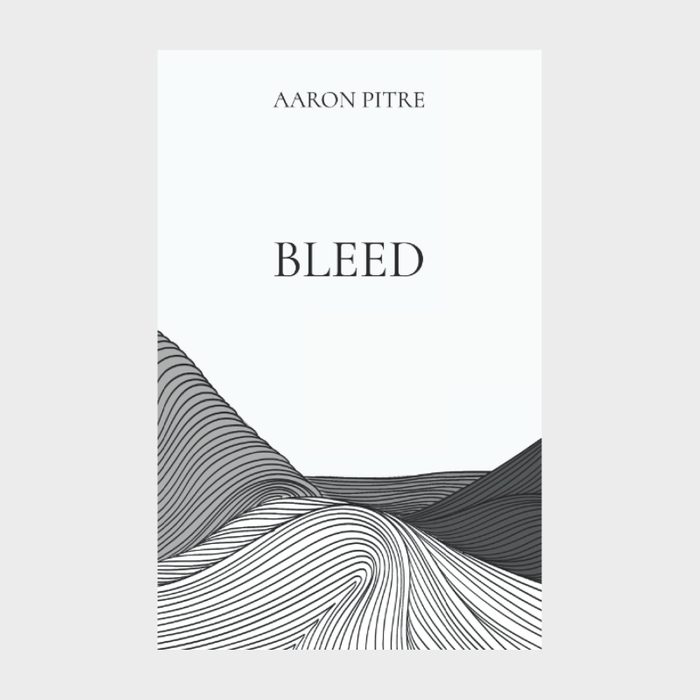
Aaron Pitre
Best-known poem: “A Half-Life”
With his 2021 poetry collection, Bleed, Aaron Pitre put himself on the map as a Black, queer poet who is not afraid to place generational trauma, sexual orientation, shame and neglect front and center. Pitre uses his poetry to empower others to embrace the pain they may be feeling, in order to heal. Grab Bleed next time you reach for an LGBTQ+ book, or head to Pitre’s Instagram account to read some of his poems.
Sources:
- Black Past: “The Negro Artist and The Racial Mountain”
- The Atlantic: “Life on the Sea Islands”
- Los Angeles Review of Books: “The Radical Love of the Inflamed Heart: A Conversation with Nikki Wallschlaeger”
